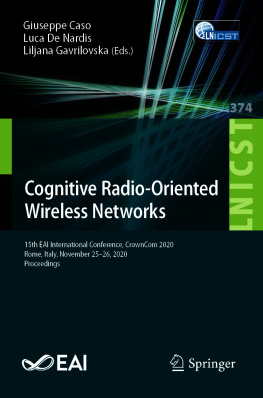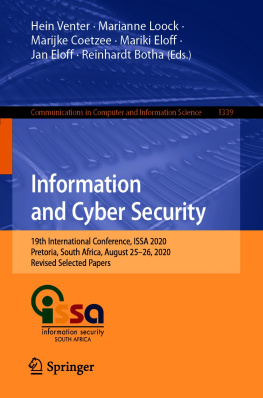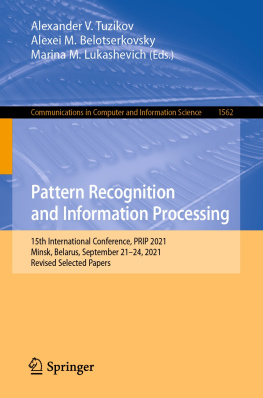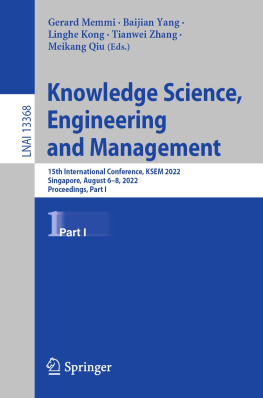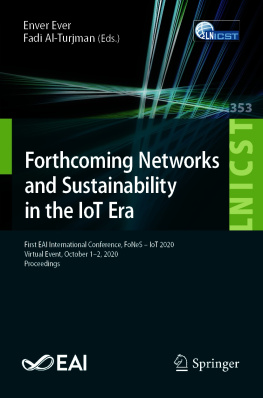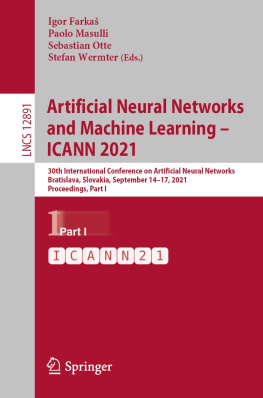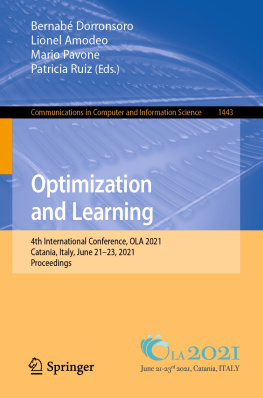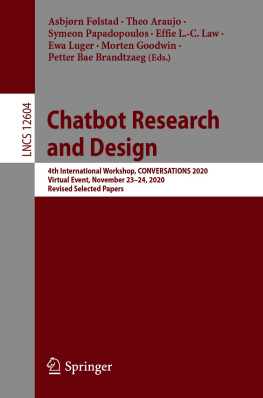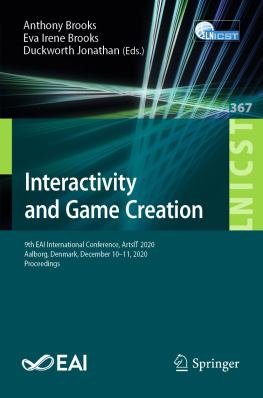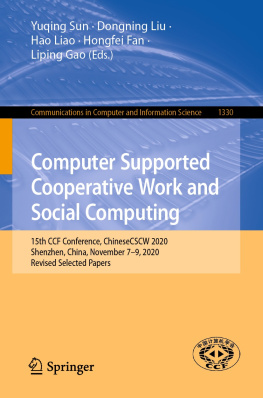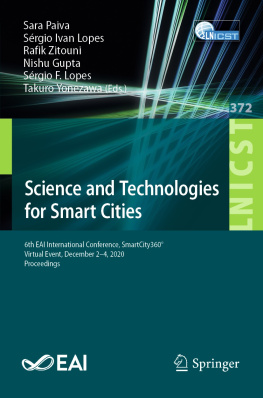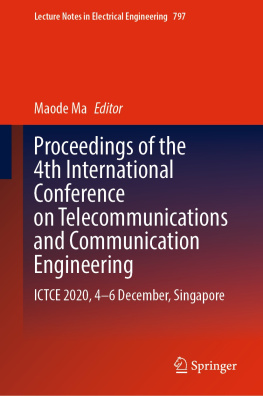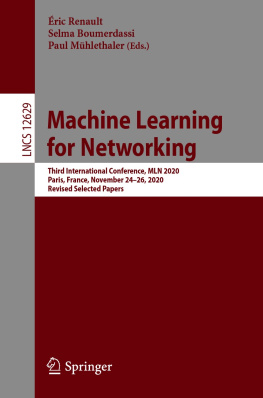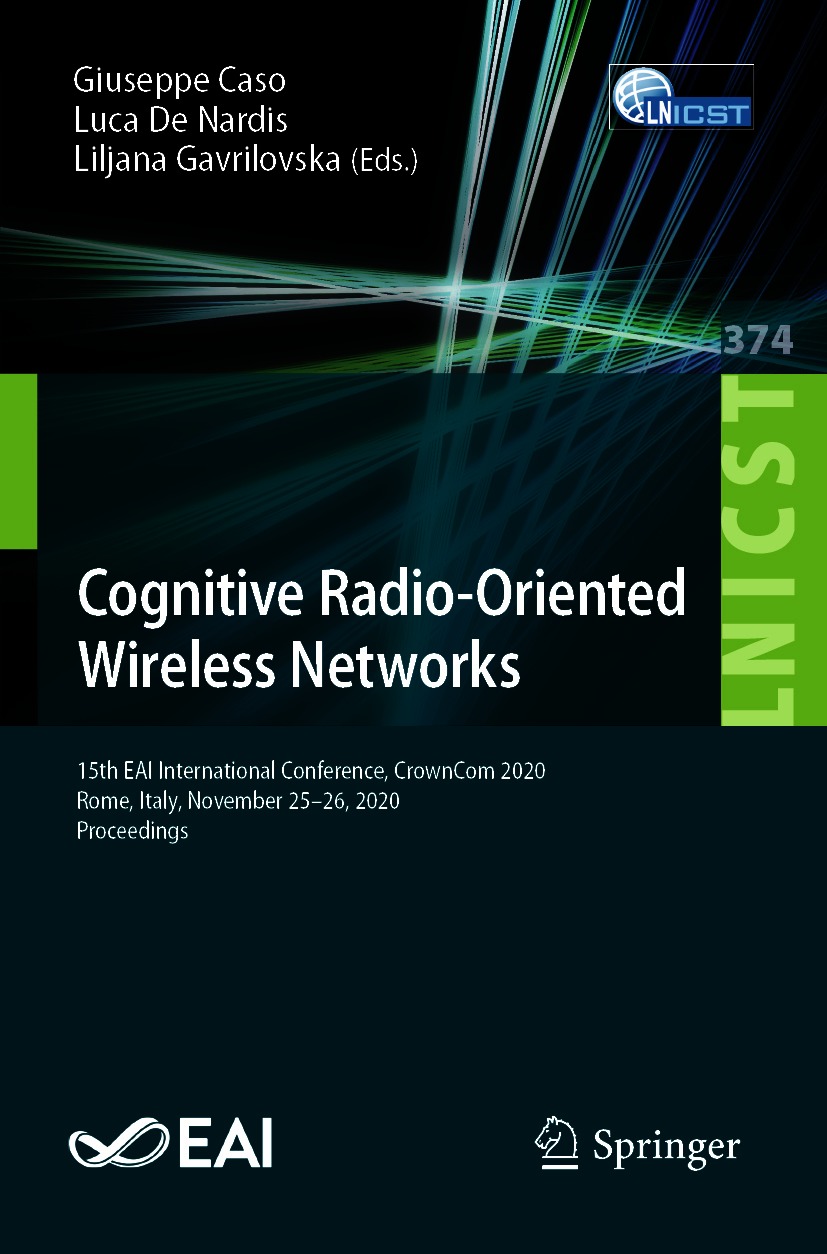Editors
Giuseppe Caso
Department of Mobile Systems and Analytics (MOSAIC), Simula Metropolitan Center for Digital Engineering (SimulaMet), Oslo, Norway
Luca De Nardis
DIET Department, Sapienza University of Rome, Rome, Italy
Liljana Gavrilovska
Faculty of Electrical Engineering and Information Technology, Ss. Cyril and Methodius University, Skopje, North Macedonia
ISSN 1867-8211 e-ISSN 1867-822X
Lecture Notes of the Institute for Computer Sciences, Social Informatics and Telecommunications Engineering
ISBN 978-3-030-73422-0 e-ISBN 978-3-030-73423-7
https://doi.org/10.1007/978-3-030-73423-7
ICST Institute for Computer Sciences, Social Informatics and Telecommunications Engineering 2021
This work is subject to copyright. All rights are reserved by the Publisher, whether the whole or part of the material is concerned, specifically the rights of translation, reprinting, reuse of illustrations, recitation, broadcasting, reproduction on microfilms or in any other physical way, and transmission or information storage and retrieval, electronic adaptation, computer software, or by similar or dissimilar methodology now known or hereafter developed.
The use of general descriptive names, registered names, trademarks, service marks, etc. in this publication does not imply, even in the absence of a specific statement, that such names are exempt from the relevant protective laws and regulations and therefore free for general use.
The publisher, the authors and the editors are safe to assume that the advice and information in this book are believed to be true and accurate at the date of publication. Neither the publisher nor the authors or the editors give a warranty, expressed or implied, with respect to the material contained herein or for any errors or omissions that may have been made. The publisher remains neutral with regard to jurisdictional claims in published maps and institutional affiliations.
This Springer imprint is published by the registered company Springer Nature Switzerland AG
The registered company address is: Gewerbestrasse 11, 6330 Cham, Switzerland
Preface
We are delighted to introduce the proceedings of the 15th edition of the EAI International Conference on Cognitive Radio Oriented Wireless Networks CROWNCOM 2020. Despite the ongoing emergency caused by the COVID-19 pandemic, which led to the decision to switch to a fully virtual format, the conference attracted researchers from all over the world active in all fields related to cognitive radio and networks and to the role of Artificial Intelligence in this research area. The theme of CROWNCOM 2020 was in fact Intersection and interaction between cognition and communications in the context of 5G networks and beyond.
The technical program of CROWNCOM 2020 consisted of 14 full papers presented in the main conference track, which covered all major technical aspects related to cognitive radio and networks. The presentations were organized into four sessions: Session 1, Spectrum sensing and environment awareness, addressing physical layer issues and in particular the collection of information towards efficient coexistence; Session 2, Resource sharing and optimization, focusing on resource sharing and network organization and optimization; Session 3, Verticals and applications, discussing verticals enabled by cognitive radio; and finally Session 4, Business models and spectrum management, which presented and discussed spectrum management approaches and business opportunities made possible by cognitive radio in 5G.
Aside from the high-quality technical paper presentations, the program also featured an interesting special session on the topic of Cognitive networks in the context of software defined everything, providing new perspectives on the role of cognitive radio and networking in the next generation flexible networks and applications, highlighting their challenges and potential. We would like to thank Dr. Jorge Pereira, Principal Scientific Officer at the Future Connectivity Systems Unit of the Directorate-General Communication Networks, Content and Technology of the European Commission, for proposing and organizing this special session.
We would like to thank the chair and members of the steering committee for granting us the opportunity of organizing the 2020 edition of CROWNCOM and participating in the legacy set by this conference through the years. We would also like to thank the colleagues that made this event possible: the authors that decided to submit their work to CROWNCOM 2020, allowing us to present a high-quality program; the members of the organizing committee, the chairs and members of the Technical Program Committee (TPC); and the reviewers, fundamental for carefully selecting the best contributions. We would like to acknowledge in particular Dr. Adrian Kliks, General Co-Chair of CROWNCOM 2019 and TPC Co-Chair in the 2020 edition, for his fundamental support in all phases of the conference organization, from the definition of its scope to the management of the reviewing process. We are also grateful to Conference Managers Kristina Petrovicova and Angelika Klobusicka for their support during the organization.
We believe that the CROWNCOM conference is the perfect framework for presenting, discussing and learning about recent developments related to cognitive radio in the context of 5G and beyond 5G networks, and we are confident that future editions will continue to provide a stimulating environment for further advancement on the research topics addressed by the contributions presented in this volume and beyond.
Giuseppe Caso
Luca De Nardis
Liljana Gavrilovska
March 2021

